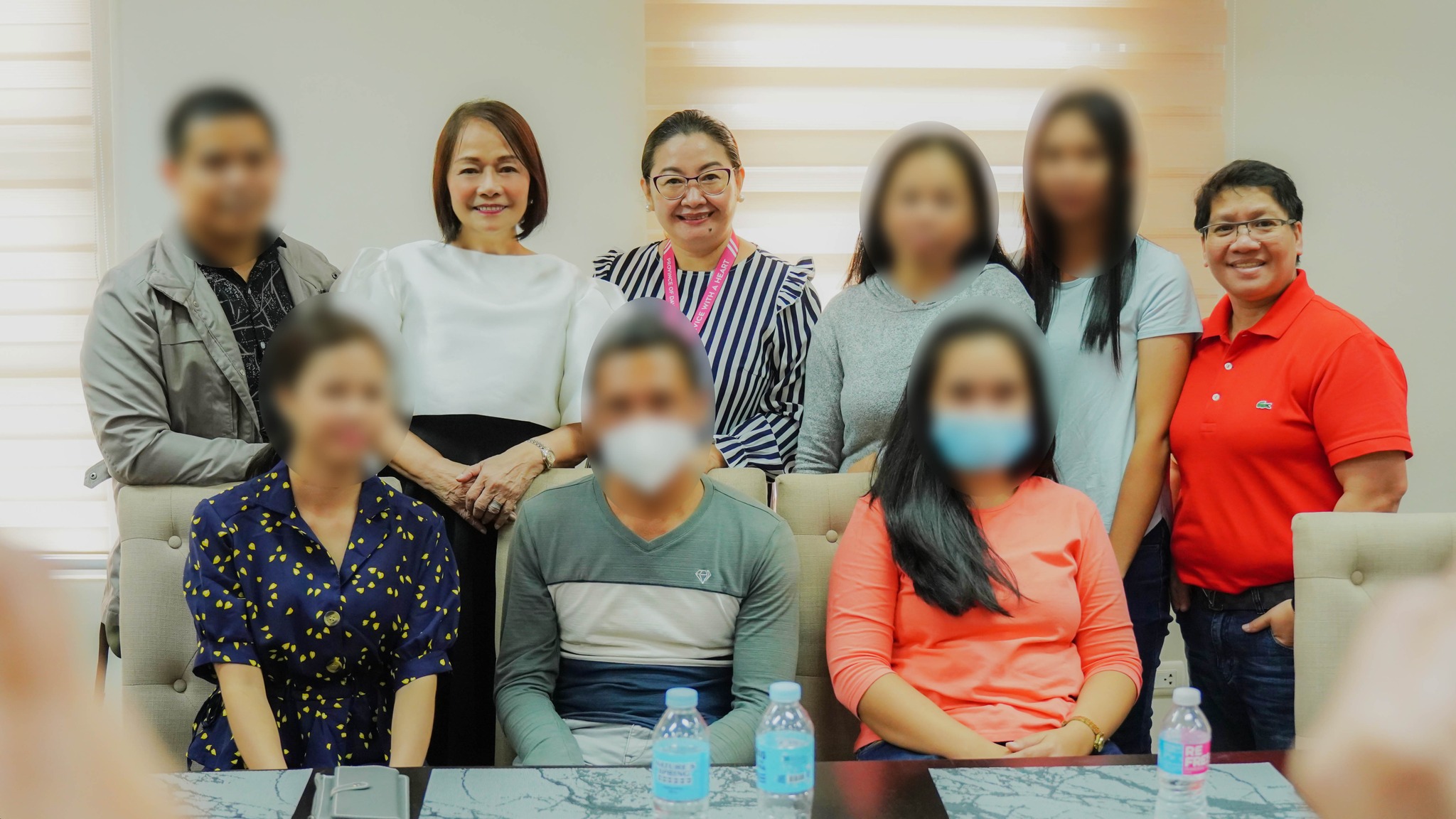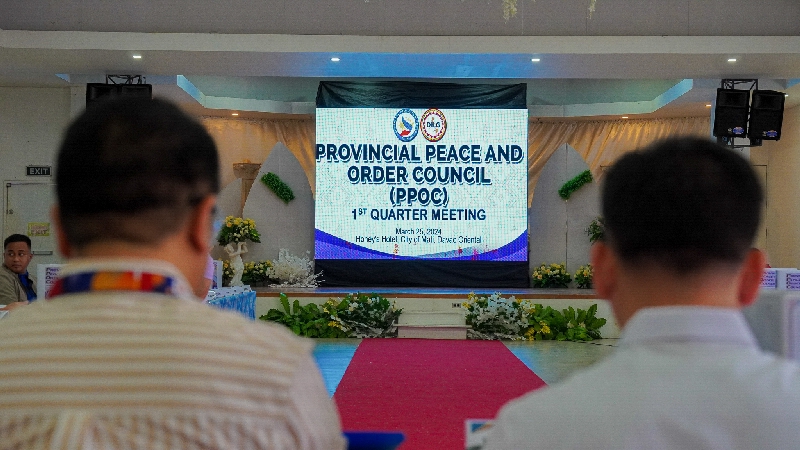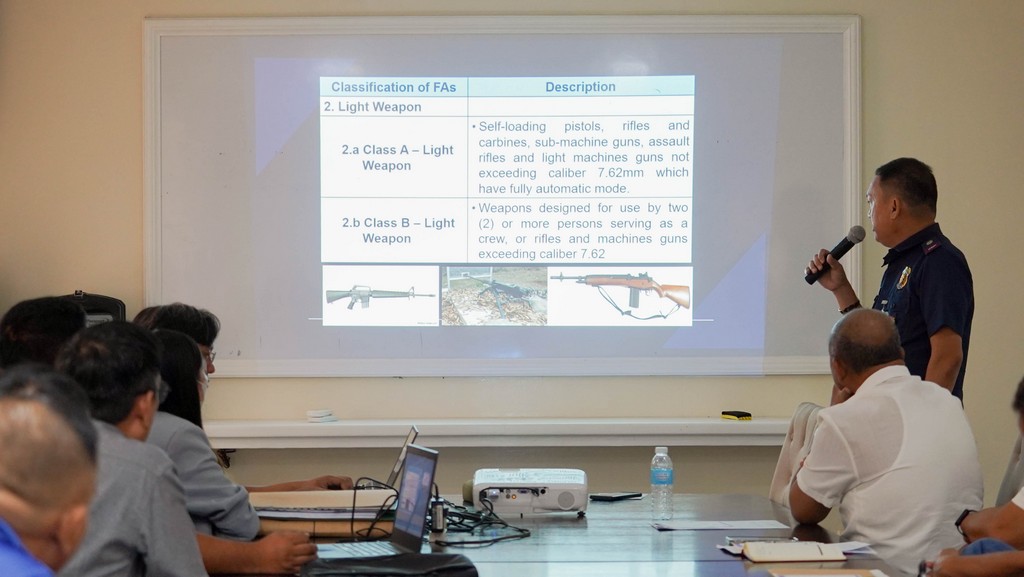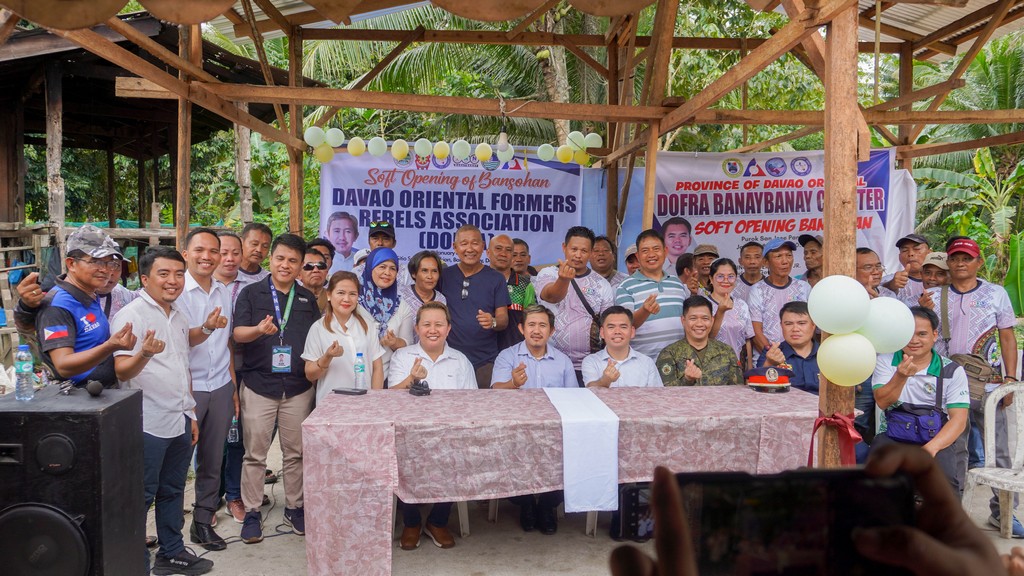After being consistently hailed as a model province because of its scores of innovative peace and order programs, the province of Davao Oriental has recently been chosen as one of the two pilot provinces in the country to implement a new program poised to sustain peace and maintain the insurgency-free status of the province of Davao Oriental and the rest of the region.
Recently, the Office of the Presidential Adviser on Peace, Reconciliation and Unity (OPAPRU) and the National Task Force to End Local Communist Armed Conflict (NTF-ELCAC) bared that they will implement a strategy dubbed Localized Peace Engagement and Transformation Programs.

While its primary purpose is to aid former rebels’ complete reintegration into mainstream society, the program will use a holistic approach by providing interventions to their families and conflict-affected communities to ensure that the root causes of insurgency are addressed.
The province of Davao Oriental having had a successful record of accomplishment in peace-building efforts led by none other than its top provincial officials, according to OPAPRU, makes it the ideal staging venue for the initial hatching of this program before instituting it in other similar areas around the country.

OPAPRU noted how under the leadership of Governor Corazon N. Malanyaon in 2013, the province institutionalized the establishment of the Happy Home, a temporary housing facility for former rebels prior to their reintegration into their communities and serving as a platform for various interventions in preparation for the mainstreaming of these ex-rebels. Since then, various national agencies and provinces that have experienced similar insurgent issues to Davao Oriental have lauded and benchmarked this approach.
Governor Malanyaon, upon hearing these developments during a meeting with OPAPRU Regional Personnel at the Provincial Capitol, expressed her enthusiasm for these new initiatives. She noted that “we can’t infuse too much progress unless we genuinely address the underlying causes of why these conflicts arise,” saying that this is simply timely and necessary in ensuring that the roots of insurgencies are further directly addressed. The Governor vowed that the provincial government is giving these new Localized Peace Engagement and Transformation Programs for CTGs and FRs in the province its unwavering support.
Concept and Operationalization
The Localized Peace Engagement and Transformation Programs aim to transform not only the lives of CTGs, former rebels, and their families but also the communities in conflict-affected and conflict-vulnerable areas.
The said initiative will be implemented through a Whole-Of-Nation Approach led by NTF-ELCAC together with OPAPRU supported by regional government agencies, ELCAC Clusters and CSOs. NTF-ELCAC and OPAPRU will spearhead the coordination and facilitate the mainstreaming of the LPE works as well as the implementation of the Transformation Programs. The said program will then be coordinated with the Local Peace Engagement (LPE) Cluster and implemented by the Provincial Task Forces headed by the Governor.
Owing to take actions where identified communist and terrorist groups’ (CTGs) nature of threat emanate, the program’s approach works on a holistic and convergent implementation of their program’s “Comprehensive Transformation” components to promote community resiliency which is aimed to lead towards full ending local communist armed conflict. This includes the integration of local peace and reconciliation efforts in order to enhance, reinforce, and strengthen Executive Order 70 (EO 70) or the Whole-of-Nation Approach to address the root causes of insurgencies, internal disturbances and tensions, and other armed conflicts and threats.

The Transformation Process for Former Rebels and their families together with their communities in conflict-affected and conflict-vulnerable areas will cover three phases. The Surfacing Phase is where former combatants are assessed, validated, certified, and provided with initial assistance to transition to their families and their communities. The Mainstreaming Phase where former combatants and non-combatants are provided with interventions and capacitation to normalize their return to the communities. And lastly, the Transformation Phase where former combatants are organized into legal entities towards their sustainable formation.
The Localized Peace Engagement’s objectives, in general, include reaching and addressing the primary insurgency concerns and issues on a level consistent with how the local communist and terrorist groups view it. Thus, providing proper interventions in line with the exact root cause where the insurgence stems from.

Furthermore, the Transformation Programs aim to make sure that the former rebels remain steadfast to their commitment to abide by the order of law and the government, and at the same time, make sure that their communities are resilient against further efforts to destroy their way of life.
Present during the presentation of the program were OPAPRU Area Manager Oliver Binancilan, OPAPRU Consultant Major General Edgardo de Leon (Ret.), Head of the LPE Director Francis Jude Lauengco. Officials present from the provincial government side were 701st Brigade Commander Brigadier General Oliver Maquiling, and ELCAC Action Officer Brigadier General Leopoldo Imbang, Jr. (Ret.). By Francis Moyoko Butulan | Photos by Mark Oliver Alvite




